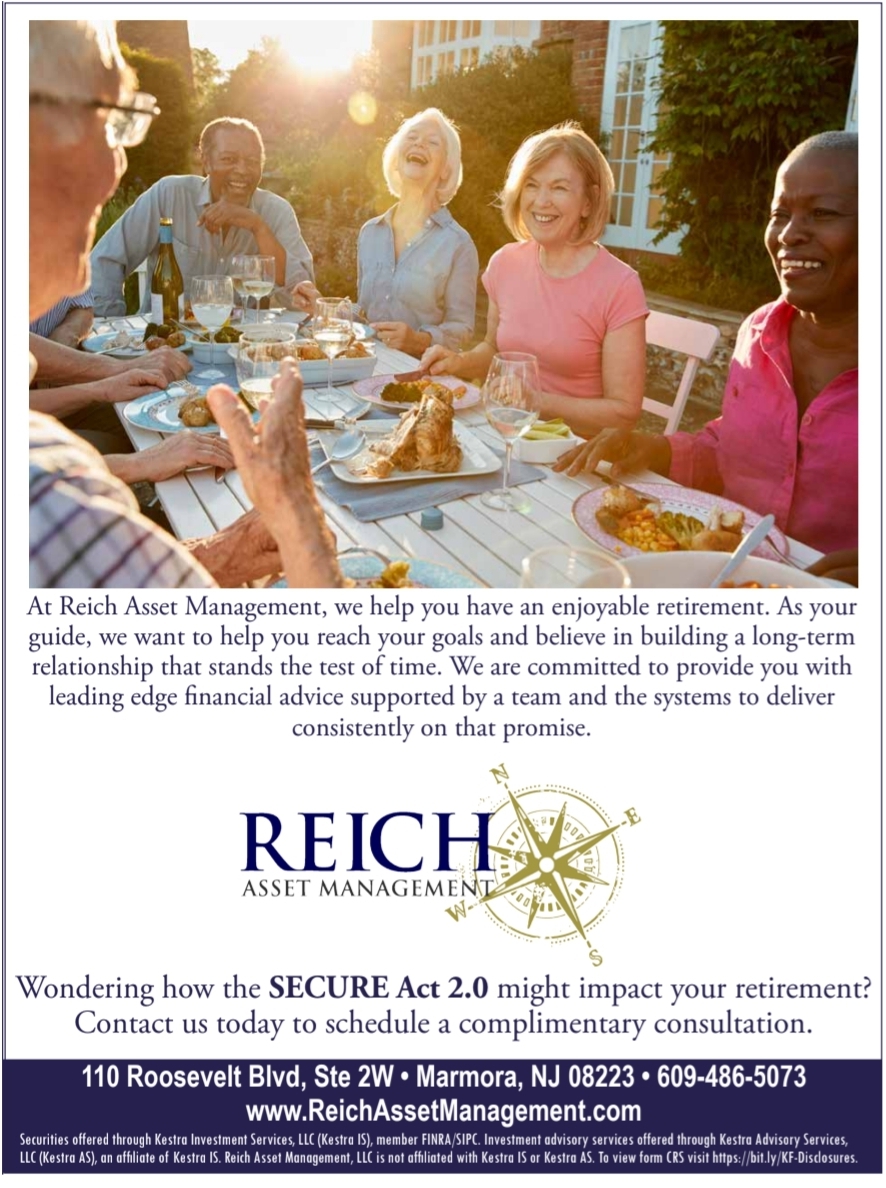By Eric Reich
I heard Mitch Anthony, founder and president of Advisor Insights Inc., speak at a retirement conference a few years ago, and he said “retirement doesn’t work.” He calls retirement an “artificial finish line.” It was an industrial age construct for people who worked in an industrial age environment. He observed that leisure has little meaning outside of work. A vacation is valuable because you are taking a break from work, but we were never meant for a perpetual life of leisure. Instead, a balance between work and leisure should be the goal. According to Anthony, “work is something that brings value to others and meaning to you”.
This really resonated with me. Having spent 25 years in this industry working as a retirement specialist, I personally don’t have any desire to retire. Look at Warren Buffet. He is 92 years old, and his business partner Charlie Munger is 98! Based on their ages and published net worth, clearly these men can afford to retire. You may feel the same way about wanting to keep working, or if you are a pre-retiree, you may be trying to figure out the next step. In fact, I’m often asked, “do you think I should retire early?” While there is no way for me to answer that for you, I’d say the majority of clients I work with, who do retire early, later wish they would have worked a few more years.
In fact, even though more than 2 million* people retired during the first 18 months of the pandemic, many are returning to work. And it’s not just due to financial reasons. A 2022 Joblist survey indicated that only 27% of those “quietly” returning to work were doing so because they needed the money and another 21% were afraid that inflation would erode their retirement funds. 60% of the retirees surveyed indicated they were going back to work because they wanted something to do. The data also showed that more than half of those returning to work were happy to do so.
This was the case even before the pandemic. In a 2017 Rand Corp study, when retirees were asked what they missed the most about pre-retirement life, surprisingly the answer was not the income. The most popular answer among retirees was the work itself, and more specifically, working with their former colleagues. As human beings, we are innately social creatures, and retirement has often been shown to lead to increased isolation, which has been shown to affect our health.
So what should pre-retirees consider before they retire? I would ask the following: What observations have you made watching other retirees? or Whose retirement do you want to model? In addition, what activities, besides a long “to do” list, will replace your work schedule? You’ve spent 40+ years working 40 hours a week and now you’re about to stop completely. You must find a way to fill a large percentage of that time. One might consider working part-time in retirement or taking up a completely new career. I find the real issue for pre-retirees is that they are simply burnt out from doing the same job for a really long time. Often, a complete change brings renewed energy, which can lead to many years of enjoyable work. All of this points to making sure you have a sense of purpose no matter what age you decide to retire.
*Forbes.com. Securities offered through Kestra Investment Services, LLC (Kestra IS), member FINRA/SIPC. Investment advisory services offered through Kestra Advisory Services, LLC (Kestra AS), an affiliate of Kestra IS. Reich Asset Management, LLC is not affiliated with Kestra IS or Kestra AS. The opinions expressed in this commentary are those of the author and may not necessarily reflect those held by Kestra Investment Services, LLC or Kestra Advisory Services, LLC. This is for general information only and is not intended to provide specific investment advice or recommendations for any individual. It is suggested that you consult your financial professional, attorney, or tax advisor with regard to your individual situation. To view form CRS visit https://bit.ly/KF-Disclosures.
Eric is President and founder of Reich Asset Management, LLC. He relies on his 25 years of experience to help clients have an enjoyable retirement. He is a Certified Financial Planner™ and Certified Investment Management AnalystSM (CIMA®) and has earned his Chartered Life Underwriter® (CLU®) and Chartered Financial Consultant® (ChFC®) designations. A lifelong resident of Cape May County, Eric resides in Seaville, NJ with his wife Chrissy and their sons ,CJ and Cooper, and daughter Riley.










